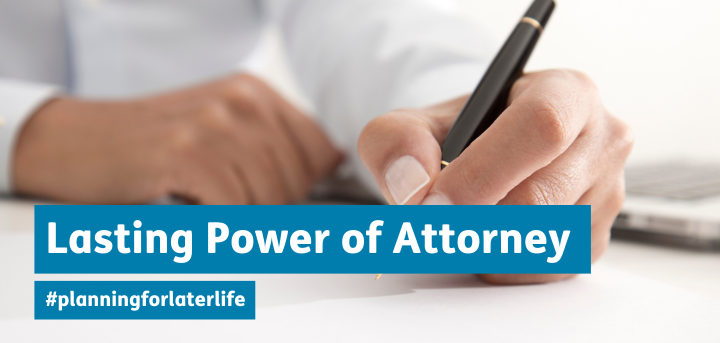Planning for Later Life: Lasting Power of Attorney

Published on 23 February 2024 01:53 PM
You’re never too young for a Power of Attorney!
What is a Power of Attorney?
A power of attorney is a way of giving someone you trust the legal authority to make decisions for you if you are unable or don’t want to make them yourself.
How many kinds of Power of Attorney are there?
There are two types of Power of Attorney you can set up – a Lasting Power of Attorney (LPA) and an Ordinary Power of Attorney (OPA).
You can only set up an LPA if you have mental capacity and haven’t been put under pressure to do so. Having mental capacity means being able to make your own decisions and understand the consequences of those decisions. An LPA can be cancelled it at any time while you still have mental capacity. There are two kinds of LPA - one for health and care decisions and one for financial decisions. The health and care LPA can only be used if you lose capacity whereas the financial one can be used while you still have capacity.
An OPA is for financial decisions and only valid while you still have mental capacity. It can be useful if you need someone to temporarily look after your finances, for example if you’re going into hospital. You can limit the power you give your attorney to meet your needs.
How to choose your attorney
When deciding who to choose as your attorney you need to consider who will act in your best interests. It could be someone you’re close to, such as a family member or friend, or a professional such as a solicitor. Whoever you choose, you should have an open conversation with them, giving them time to consider whether they’re prepared to take on the responsibility.
Depending on the circumstances, it can be a good idea to appoint more than one attorney. If you decide to have more than one attorney, consider whether you want them to make joint decisions or not. You can also appoint replacement attorneys in case someone you’ve chosen can’t act on your behalf.
How do I set one up?
There are a few steps to setting up an LPA. You can request LPA forms and an info pack from the Office of the Public Guardian. These forms can then be completed by yourself or with the help of a solicitor which will come with a cost. An LPA is a legal document, so it is usually recommended that someone with substantial knowledge assists you as mistakes can cause issues later down the line. Once the forms are completed you then need a ‘certificate provider’ to sign them to confirm you understand what the LPA is and that you haven’t been put under any pressure during the process. This person must be either someone you’ve known well for at least 2 years or a professional such as a doctor or solicitor. The final step is then to register the LPA with the Office of the Public Guardian. If you’re using a solicitor, they will usually do this for you.
Who can help me?
Age UK Norfolk’s Lasting Power of Attorney service is available to anyone over 50 in Norfolk. We can discuss LPA’s over the phone, offering information and advice. We can also assist with completing forms and the registration process. You can find more information about the service on our website - Age UK Norfolk | Lasting Power of Attorney.
The Law Society can also help you find an experienced solicitor to assist with setting up an LPA. They will guide you through the process, offering advice to make sure you are happy. It is a good idea to shop around to find the right solicitor for you. Find more information on their website - Find a Solicitor - The Law Society